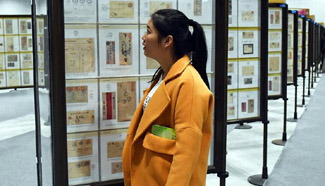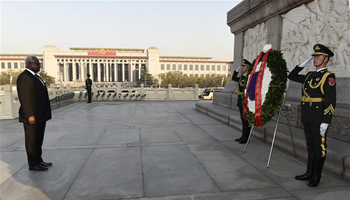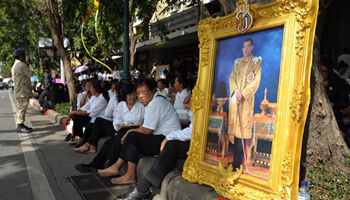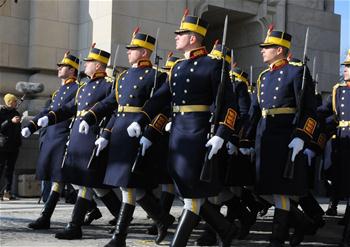BRUSSELS/BEIJING, Dec. 2 (Xinhua) -- The European Union should look at the whole picture of the China-EU trade ties, instead of being hesitant to fully fulfill its obligation under the Protocol on China's Accession to the World Trade Organization (WTO).
Under Article 15 of the Protocol on China's Accession to the WTO, the EU must end its "surrogate country system" by Dec. 11, 2016. Under the system, costs of production in a third country are used to calculate the value of products from "non-market economies."
The European Commission, the bloc's executive arm, last month presented to the European Council and the European Parliament a proposal on changing its anti-dumping and anti-subsidy methodologies.
Some WTO members, including China, labeled by the EU as "non-market economies," would no longer be applied to "surrogate country" calculation, the commission said. But it left open the option to use "international" price and cost reference in further anti-dumping cases if "market distortion" was found.
In this way, the EU's new methodology would still fall short of its obligation to international trade rules, Renato Antonini, partner at Brussels-based law firm Jones Day, told Xinhua.
The commission replaced the concept and standards of "non-market economies" with those of "market distortion," which was groundless under the WTO framework, to safeguard its trade defense instruments in anti-dumping cases, he added.
Brussels showed a trade protectionism leaning in its new anti-dumping regime and could jeopardize its trade ties with China, experts said, urging the EU to adopt real legislative changes in its new anti-dumping methodology.
Brussels would damage its own interests, particularly after a WTO panel ruled in March that the EU broke WTO rules by miscalculating anti-dumping tariffs it imposed on Argentine biodiesel, experts warned.
Moreover, the EU has become China's biggest trade partner and the two sides have enjoyed sound development of economic cooperation in recent years.
Data from Chinese customs authorities showed that bilateral trade witnessed growth between January and October this year, making China-EU trade value reach 2.94 trillion yuan (around 427 billion U.S. dollars ) in the first 10 months.
China and the EU have a solid foundation of cooperation and the two sides have enhanced cooperation on connectivity, investment plans, and other strategies including "Made in China 2025" and Germany's "Industry 4.0," said Wang Yiwei, director of the Center for European Studies at China's Renmin University.
Anti-dumping cases accounted for less than 2 percent of the total EU-China trade and it was not worthy for Brussels to put bilateral trade ties on edge, Pierre Defraigne, executive director of the Brussels-based think tank the Madariaga-College of Europe Foundation, told Xinhua.
Amid the surge of protectionism in global trade and the gloom about the outlook of an EU-U.S. free trade deal, Europe's foreign trade policy should focus more on Eurasia, especially China, Defraigne added.
China and the EU could work closer to further explore cooperation and promote bilateral trade ties, Wang said.











